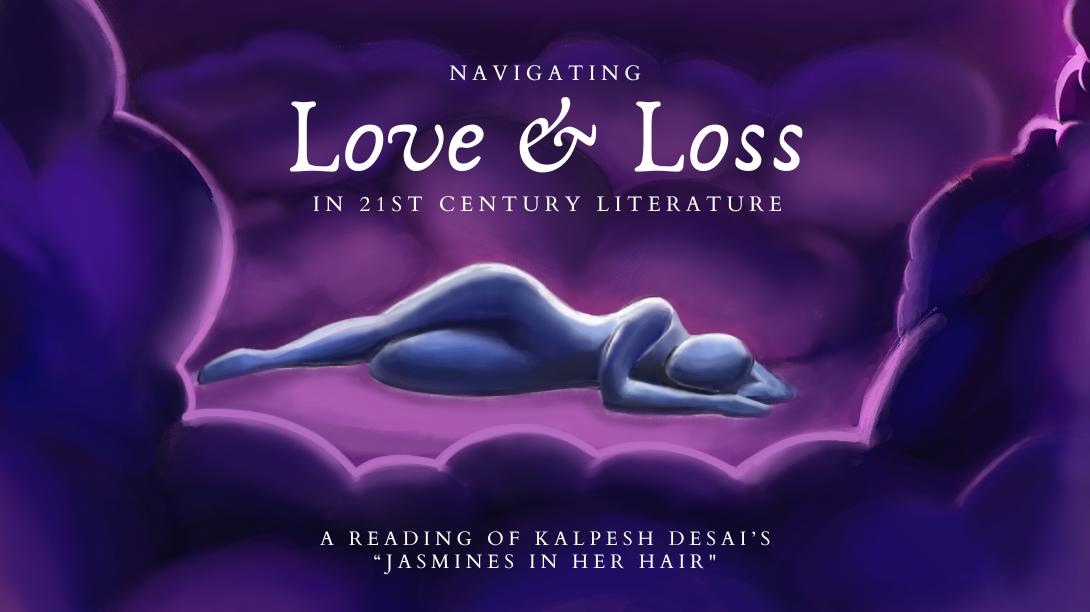In literature, poetry is unique, offering a window into the soul’s deepest emotions. Kalpesh Desai’s collection of poems titled “Jasmines in Her Hair” delves into human conditions and self-discovery, with evident themes of love and loss. These are timeless themes that have been explored in literature for centuries. The poems and verses navigate through the degrees of love and desire, echoing the sentiments of a new generation seeking connection in an increasingly disconnected world. “Jasmines in Her Hair” captures the earnest longing to connect profoundly, reflecting modern romanticism's emphasis on passion and the personal. Through his poems, Desai expresses the pith of romanticism, specifically modern romanticism.
Romanticism was a cultural movement characterized by its emphasis on intense emotion as the authentic source of aesthetic experience. Its influence on literature, art, music, and culture cannot be overstated. It birthed new forms of expression and played a pivotal role in shaping the modern world. Even in our contemporary lives, we can still discern the echoes of Romanticism. Kalpesh Desai's poetry collection is a testament to this.
What sets Jasmines In Her Hair as a part of this literary movement is Desai's unique style of language and expression. The verses infuse a sense of liberation and defiance against conventional norms, reflecting the Romantic spirit of innovation and creativity. One of the most notable features of Romanticism is the exploration of the emotional spectrum, particularly themes of love, loss, and longing. Seeking to express the full range of human emotions and experiences, often through vivid and dramatic imagery. The poems in this book have managed to delve into the inner workings of the human psyche and the mysteries of the natural world. However,
The first few poems express love and an even deeper tangent of exhibiting devotion, a theme that includes pleasure, worship, and satiety. Seen in poems such as “Unspoken Desires”, “Addiction”, and “The Many Ways I Love You” explore the persona’s desire to have the addressee feel the weighing devotion that he has. The language used in these verses suggests expressing pleasure to the addressee. Yet, it does not sacrifice the aesthetic value of describing what the persona pines for. The poet's work chronicles a journey through the heart's labyrinth, with each poem serving as a milestone of emotional evolution. From the innocence of "Young Love" to the reflective "My Journey", these poems exhibit love that has changed through time. The verses suggest that the persona was aware of the evolution of their relationship and eventually accepted the changes that the growth had brought.
In the collection of poems by Desai, the theme of love is explored through the lens of loss. The persona in the poems such as “Just Because”, “I Didn’t Love You”, and “Find Me In Your Photographs” reflects on the memories and experiences shared with the addressee. However, the loss of that love prompts a yearning within the persona to revisit what they once had. In “Walking in the Rain” and “Monsoon Memories”, the weather is a metaphor for the changing phases of love. These poems suggest that the heart's emotions change just as the seasons change. Weather, as a metaphor, highlights love's tumultuous nature, which can be both beautiful and unpredictable. Desai’s exploration of love and loss in these poems becomes a mnemonic device that reminds us that the psyche is a complex facet that can experience joy and pain. Desai invites his readers to traverse the spectrum of romantic experiences, mirroring the romantic ideal of life as a path of spiritual and emotional growth.
Kalpesh Desai's “Jasmines in Her Hair” is a vibrant addition to the plethora of modern romanticism literature, offering a fresh perspective on timeless themes. His work reminds us that the romantic spirit is alive and well, continuing to inspire and console those who navigate the complexities of the human heart. If you're a fan of modern romanticism or just enjoy poetry that delves into the depths of human emotion, we highly recommend checking out Kalpesh Desai's collection!
Written by Leila Andrea P. Anchovas

